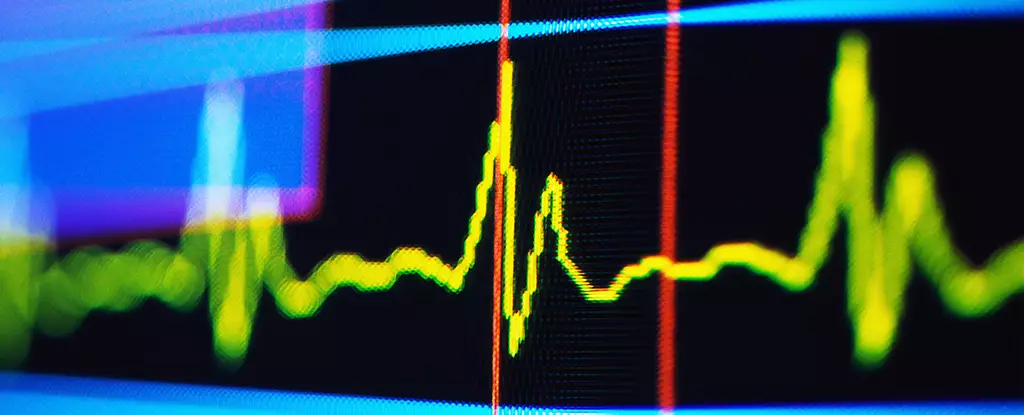A recent study has unveiled an intriguing correlation between variations in pulse rates during sleep and the trajectory of cognitive decline in older adults. This breakthrough not only provides an innovative and potentially lifesaving diagnostic tool but also propels our understanding of how cognitive impairments may unexpectedly evolve. By examining pulse rate complexity—essentially, how much these rates fluctuate throughout the night—researchers found that a more complex pulse pattern might be associated with slower cognitive deterioration. Conversely, a simpler, stable pulse suggested a faster decline in cognitive functions. This finding has the potential to revolutionize the way we approach dementia and related cognitive disorders, presenting a clear and urgent call for further exploration.
Understanding Pulse Rate Complexity: A New Perspective on Heart Health
Traditionally, researchers have utilized varied measures of heart rate to predict various health outcomes. However, insights from this new study suggest that an emerging method known as distribution entropy offers greater sensitivity in identifying health risks, particularly regarding cognitive decline. Unlike conventional measures which failed to highlight this connection, distribution entropy emphasizes how adaptable a heart is in response to the body’s shifting needs. A heart that modifies its rhythm in response to stressors and other internal demands functions as a robust indicator of overall well-being. In this light, higher complexity in pulse rates might indicate a nimbleness that supports healthy brain function—resilience, adaptability, and vitality.
The researchers, spearheaded by a team of international experts, conducted thorough analyses on 503 elderly individuals—an average age of 82. Through meticulous statistical modeling, they observed that those exhibiting greater pulse rate complexity demonstrated a decreased pace of cognitive decline years later. This compelling evidence centers around the notion that heart health may extend beyond the mere physical realm, outlining its importance as a precursor to mental acuity.
Bridging Neuroscience and Cardiovascular Health: Urgency for Further Research
As researchers navigate this uncharted territory, the implications of these findings cannot be overstated. With each heartbeat reflecting not just pulsations of life but also insights into cognitive well-being, the need for comprehensive studies has never been more pressing. The study’s intriguing findings point towards a possible biological mechanism connecting heart complexity with cognitive resilience. Questions abound: Could the state of one’s heart predict the onset of dementia? Can proactive measures in heart health be integrated into broader cognitive health strategies?
Biomedical engineers such as Peng Li emphasize the necessity of viewing heart rate complexity as a marker of healthy physiology. It’s no longer just about the heartbeat; it’s about how that heartbeat behaves. It indicates a body in tune with itself, capable of adapting to life’s myriad challenges, a true testament to health.
Yet, the quest for concrete links between heart rate and neurodegenerative conditions requires deeper exploration. Though the initial findings are provocative, they also highlight the burgeoning need for a multidisciplinary approach that unites cardiology and neuroscience. This relationship could redefine preventative measures in healthcare, reorienting our focus from reactive treatments to proactive strategies for maintaining cognitive health.
A Call for Innovation in Healthcare Measurements
The implications of this research extend far beyond the scope of individual health metrics. If we can establish a reliable correlation between pulse rate complexity and cognitive decline, we could pave the way for a revolutionary non-invasive screening tool. Patients might one day be able to monitor their heart’s adaptability from the comfort of their own homes, offering clinicians vital insights into potential cognitive risks well before symptoms manifest.
As governments and healthcare systems grapple with the looming crises of aging populations and increasing rates of dementia, this research illuminates a path forward. By adopting innovative heart and brain health assessment tools, we can extend quality of life for countless individuals, enabling them to face their twilight years with confidence and support.
In a landscape where intervention is often too late, this groundbreaking notion of harnessing heart rate complexity as an early indicator of cognitive decline could not be more timely. It pushes the boundaries of traditional medicine and offers a glimpse of exciting possibilities for future healthcare paradigms. The intersection of heart health and cognitive resilience presents not merely an academic discovery but a transformative vision for individualized and preventive healthcare. The pulse of this research does not merely beat for the present; it resonates with the promise of a healthier future.


Leave a Reply